You are using an out of date browser. It may not display this or other websites correctly.
You should upgrade or use an alternative browser.
You should upgrade or use an alternative browser.
So...You Want to Breed Your Own Hops.
- Thread starter PapaBearJay
- Start date

Help Support Homebrew Talk:
This site may earn a commission from merchant affiliate
links, including eBay, Amazon, and others.
PapaBearJay
Well-Known Member
- Joined
- Dec 5, 2012
- Messages
- 601
- Reaction score
- 198
From what I read on here on the forum it seems that germination rates are pretty low. It would be nice to get at least one male and one female. That would make me happy. If I could only pick one I would pick the one male. As that would give me a way to create my own seeds.
That's precisely what I'm hoping for as well. At least this season I'll be able to determine the gender of 2nd year plants, and hope that if I have any males that I get pollen in time.
brewerelated
Well-Known Member
How many second year plants do you have? I am thinking there should be roughly a 50/50 chance of getting a male vs female.
If you have 4 plants you have about a 94% chance that you get 1 male or more assuming that hops are 50/50 male to female.
If you have 4 plants you have about a 94% chance that you get 1 male or more assuming that hops are 50/50 male to female.
brewerelated
Well-Known Member
Nice. I really should of ordered some this year. I have a lot of room to grow them in too
Sent from my iPhone using Home Brew
You can probably still get some rhizomes. Some of the rhizomes that I ordered this year haven't even arrived yet. They usually start shipping at the end of March or beginning of April.
PapaBearJay
Well-Known Member
- Joined
- Dec 5, 2012
- Messages
- 601
- Reaction score
- 198
How many second year plants do you have? I am thinking there should be roughly a 50/50 chance of getting a male vs female.
If you have 4 plants you have about a 94% chance that you get 1 male or more assuming that hops are 50/50 male to female.
I don't remember the exact number at this point, in fact, here in the next couple weeks I need to uncover and pull them out (of the ground). My luck I won't have any males.
alane1
Well-Known Member
I don't remember the exact number at this point, in fact, here in the next couple weeks I need to uncover and pull them out (of the ground). My luck I won't have any males.
Don't look at it like that, you could have a female that's a winner, or a male that's resistant to every disease. You never know, that's the beauty of genetics.

$7.79 ($7.79 / Count)
Craft A Brew - LalBrew Voss™ - Kveik Ale Yeast - For Craft Lagers - Ingredients for Home Brewing - Beer Making Supplies - (1 Pack)
Craft a Brew

$53.24
1pc Hose Barb/MFL 1.5" Tri Clamp to Ball Lock Post Liquid Gas Homebrew Kegging Fermentation Parts Brewer Hardware SUS304(Liquid Hose Barb)
yunchengshiyanhuqucuichendianzishangwuyouxiangongsi

$53.24
1pc Hose Barb/MFL 1.5" Tri Clamp to Ball Lock Post Liquid Gas Homebrew Kegging Fermentation Parts Brewer Hardware SUS304(Gas Hose Barb)
Guangshui Weilu You Trading Co., Ltd

$176.97
1pc Commercial Keg Manifold 2" Tri Clamp,Ball Lock Tapping Head,Pressure Gauge/Adjustable PRV for Kegging,Fermentation Control
hanhanbaihuoxiaoshoudian

$76.92 ($2,179.04 / Ounce)
Brewing accessories 1.5" Tri Clamp to Ball Lock Post Liquid Gas Homebrew Kegging Fermentation Parts Brewer Hardware SUS304 Brewing accessories(Gas Hose Barb)
chuhanhandianzishangwu

$33.99 ($17.00 / Count)
$41.99 ($21.00 / Count)
2 Pack 1 Gallon Large Fermentation Jars with 3 Airlocks and 2 SCREW Lids(100% Airtight Heavy Duty Lid w Silicone) - Wide Mouth Glass Jars w Scale Mark - Pickle Jars for Sauerkraut, Sourdough Starter
Qianfenie Direct

$479.00
$559.00
EdgeStar KC1000SS Craft Brew Kegerator for 1/6 Barrel and Cornelius Kegs
Amazon.com

$719.00
$799.00
EdgeStar KC2000TWIN Full Size Dual Tap Kegerator & Draft Beer Dispenser - Black
Amazon.com

$44.99
$49.95
Craft A Brew - Mead Making Kit – Reusable Make Your Own Mead Kit – Yields 1 Gallon of Mead
Craft a Brew

$22.00 ($623.23 / Ounce)
AMZLMPKNTW Ball Lock Sample Faucet 30cm Reinforced Silicone Hose Secondary Fermentation Homebrew Kegging joyful
无为中南商贸有限公司

$159.99 ($26.66 / Count)
3M High Flow Series System BREW120-MS, 5616001, For Brewed Coffee and Hot Tea, Valve-in-Head Design
SpaceCityProviders

$10.99 ($31.16 / Ounce)
Hornindal Kveik Yeast for Homebrewing - Mead, Cider, Wine, Beer - 10g Packet - Saccharomyces Cerevisiae - Sold by Shadowhive.com
Shadowhive

$172.35
2 Inch Tri Clamp Keg Manifold With Ball Lock Posts, Pressure Gauge, PRV (0-30 PSI) – Homebrew, Fermentation, Kegging System
wuhanshijiayangzhiyimaoyiyouxiangongsi

$28.98
Five Star - 6022b_ - Star San - 32 Ounce - High Foaming Sanitizer
Great Fermentations of Indiana

$58.16
HUIZHUGS Brewing Equipment Keg Ball Lock Faucet 30cm Reinforced Silicone Hose Secondary Fermentation Homebrew Kegging Brewing Equipment
xiangshuizhenzhanglingfengshop

$20.94
$29.99
The Brew Your Own Big Book of Clone Recipes: Featuring 300 Homebrew Recipes from Your Favorite Breweries
Amazon.com
JacksonPollock
Member
- Joined
- Mar 30, 2014
- Messages
- 11
- Reaction score
- 2
Actually, you could simply use your female plants for pollination. Spraying a water solution with fifty parts per million or so of gibberellic acid and shading the plants should make your females produce some male flowers. Or not. I'm just guessing at it.
PapaBearJay
Well-Known Member
- Joined
- Dec 5, 2012
- Messages
- 601
- Reaction score
- 198
Some early morning goodies.
So, 10 more germinated over the weekend, excellent. That's 13 total, across 4 families/seed lots.
The toothpicks will signify their germination week, and they will be assigned breeding numbers based on the seedlot, date, and germination week.
Here soon I will be starting a document to pass around as a central organizing document for us to keep track of our materials.
Is everyone on board?

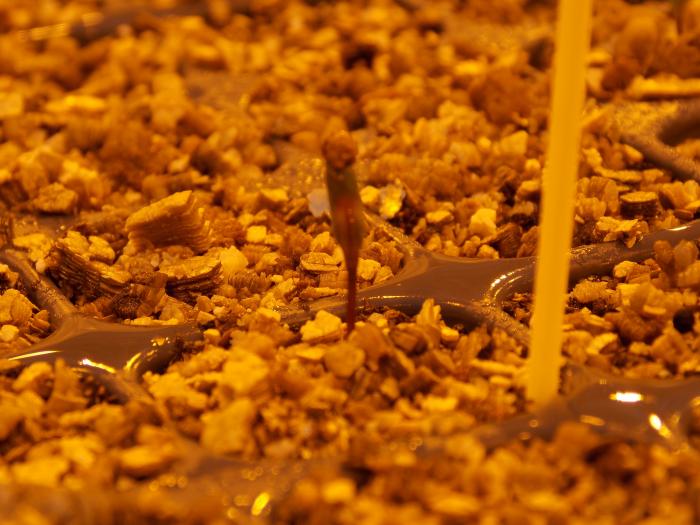
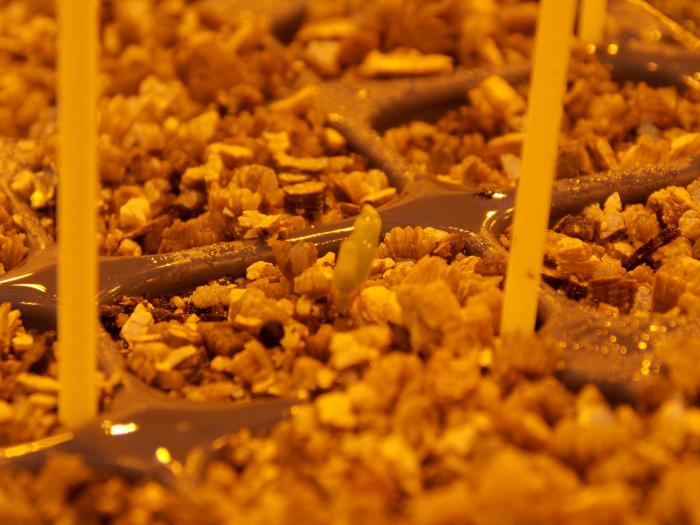
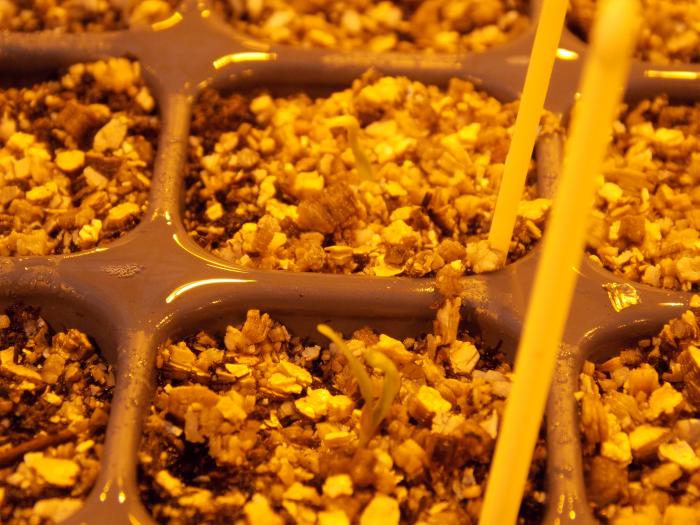
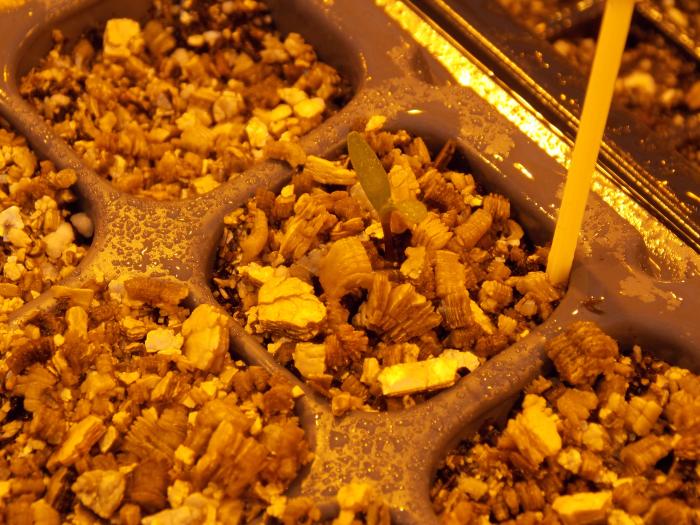
So, 10 more germinated over the weekend, excellent. That's 13 total, across 4 families/seed lots.
The toothpicks will signify their germination week, and they will be assigned breeding numbers based on the seedlot, date, and germination week.
Here soon I will be starting a document to pass around as a central organizing document for us to keep track of our materials.
Is everyone on board?





PapaBearJay
Well-Known Member
- Joined
- Dec 5, 2012
- Messages
- 601
- Reaction score
- 198
And some more!

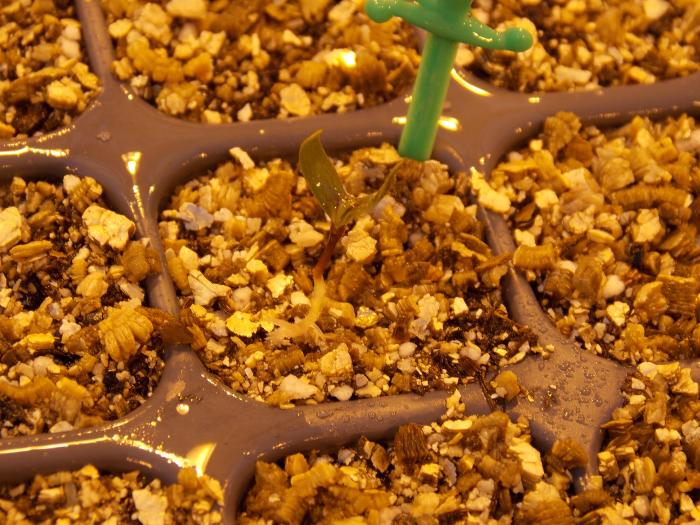
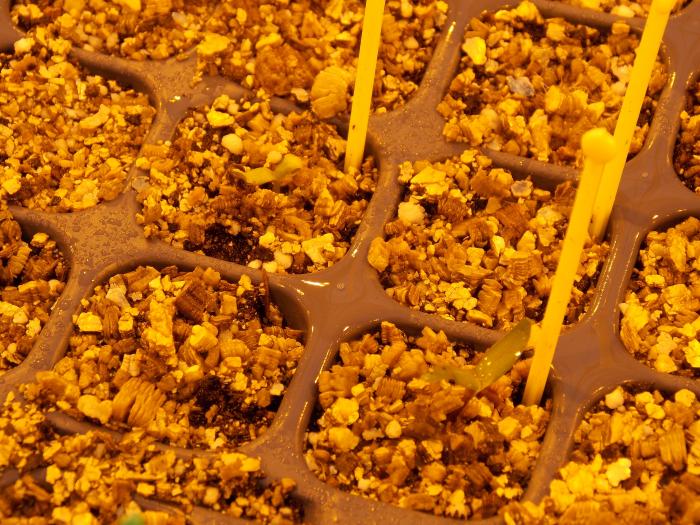
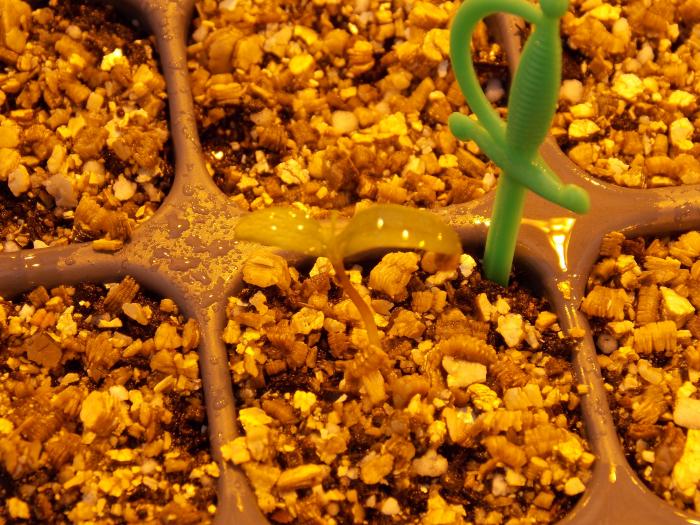




brewerelated
Well-Known Member
What was your method for getting the seeds above to germinate? Did you germinate them in the vermiculite or did you germinate them first and then transplant them into the vermiculite? How long did you stratify those seeds for?
I am on board for documenting and staying organized.
I am on board for documenting and staying organized.
DarkCoder
Well-Known Member
Here soon I will be starting a document to pass around as a central organizing document for us to keep track of our materials.
Is everyone on board?
That would be nice...maybe a spreadsheet share through Google doc. That would be a nice way to show plant material that we are ready to share with the breeding community.
PapaBearJay
Well-Known Member
- Joined
- Dec 5, 2012
- Messages
- 601
- Reaction score
- 198
What was your method for getting the seeds above to germinate? Did you germinate them in the vermiculite or did you germinate them first and then transplant them into the vermiculite? How long did you stratify those seeds for?
I am on board for documenting and staying organized.
The above pictured seeds were cold-stratified at 40-46 degrees for 6 weeks. Two of the green (toothpicks) seedlings were actually germinated inside of the cooler. They were stratified in their current container in the cooler, in the soil mix. Moisture was checked weekly and a dome was placed on top to reduce moisture lost.
alane1
Well-Known Member
The glare from the lighting looks like high pressure sodium, is that what you're using? When my seedlings germinate I plan on using 400 w high pressure sodium with a 12/12 schedule. I like your idea about staying organized too.
PapaBearJay
Well-Known Member
- Joined
- Dec 5, 2012
- Messages
- 601
- Reaction score
- 198
The glare from the lighting looks like high pressure sodium, is that what you're using? When my seedlings germinate I plan on using 400 w high pressure sodium with a 12/12 schedule. I like your idea about staying organized too.
Yes, they are HPS. Frankly, I'd recommend giving it 16/8, as that way they will be fully vegetative, especially since the growing season will be upon us soon. Also the longer you can extend the growing season the better, though they'll get to be a decent size by the end of the first season.
PapaBearJay
Well-Known Member
- Joined
- Dec 5, 2012
- Messages
- 601
- Reaction score
- 198
Can everyone interested PM their e-mail for document sharing?
PapaBearJay
Well-Known Member
- Joined
- Dec 5, 2012
- Messages
- 601
- Reaction score
- 198
Here's an update from yesterday everyone. Seven more seedlings germinated.
I am working on the document right now and should be able to send something out this evening.
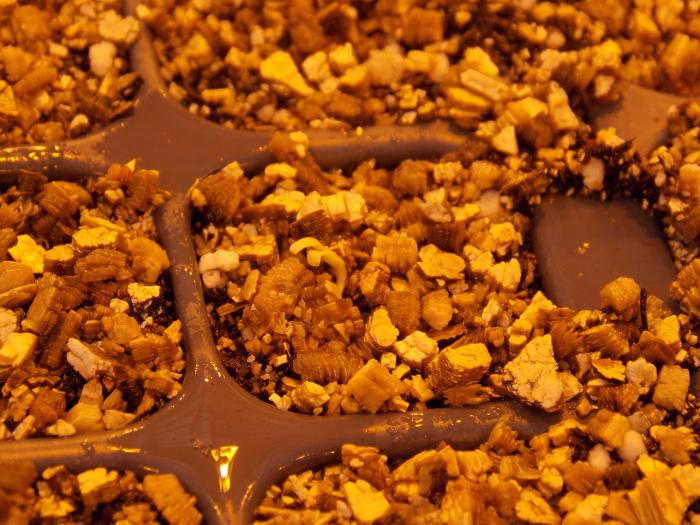
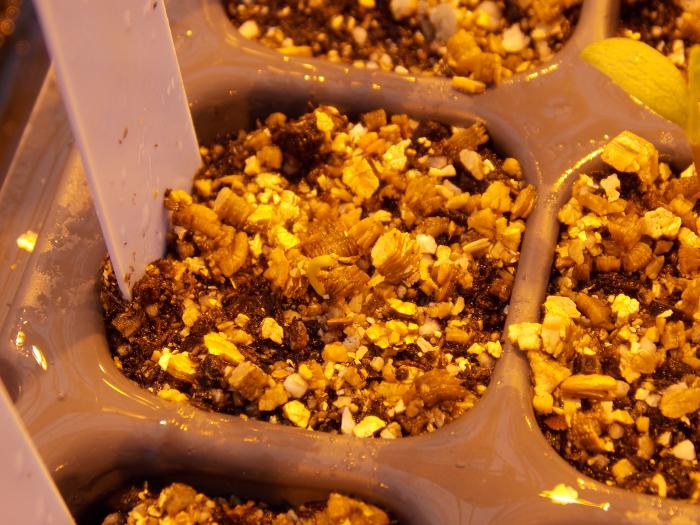

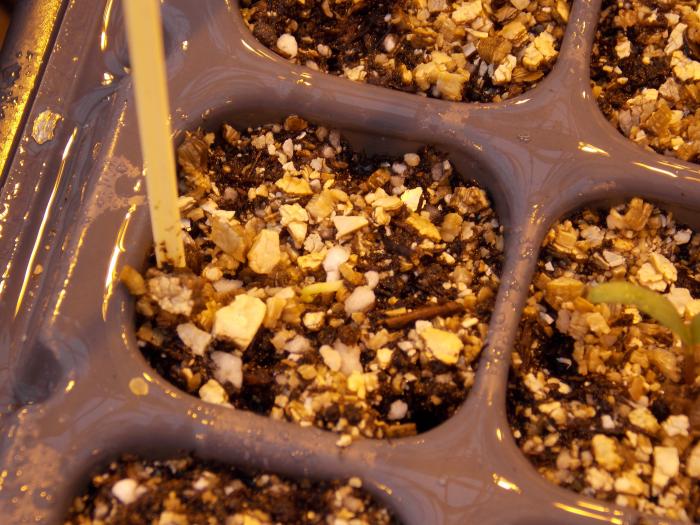
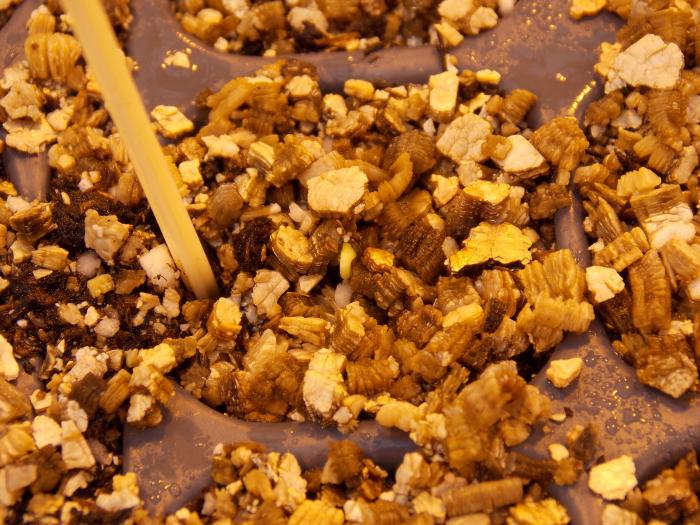
I am working on the document right now and should be able to send something out this evening.





alane1
Well-Known Member
The batch that I took out of the fridge Sunday two of them germinated already, I tried to take pics but they didn't come out. I'll post some when they poke out of the soil.
PapaBearJay
Well-Known Member
- Joined
- Dec 5, 2012
- Messages
- 601
- Reaction score
- 198
Just a couple more.
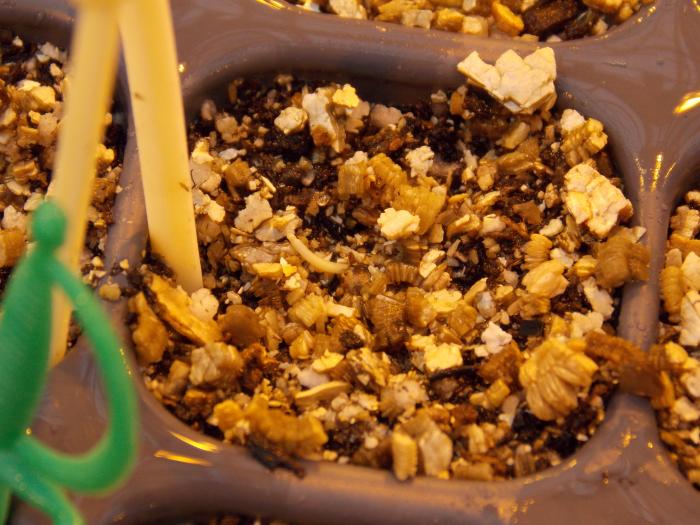
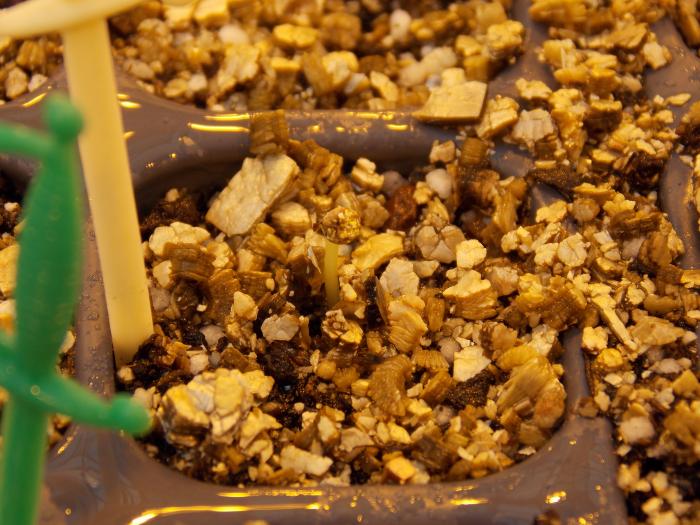


alane1
Well-Known Member
The above pictured seeds were cold-stratified at 40-46 degrees for 6 weeks. Two of the green (toothpicks) seedlings were actually germinated inside of the cooler. They were stratified in their current container in the cooler, in the soil mix. Moisture was checked weekly and a dome was placed on top to reduce moisture lost.
what was your germination rate, or is the jury still out?
PapaBearJay
Well-Known Member
- Joined
- Dec 5, 2012
- Messages
- 601
- Reaction score
- 198
what was your germination rate, or is the jury still out?
As far as I'm aware they're still germinating, so the jury is still out. Generally I try to allow for up to 8 weeks after stratification before I make any determinations. Yes, that seems like a long time, but some seeds need more help than others.
alane1
Well-Known Member
I just checked them again, it seems like another one germinated


PapaBearJay
Well-Known Member
- Joined
- Dec 5, 2012
- Messages
- 601
- Reaction score
- 198
I just checked them again, it seems like another one germinated
Excellent!
brewerelated
Well-Known Member
The batch that I took out of the fridge Sunday two of them germinated already, I tried to take pics but they didn't come out. I'll post some when they poke out of the soil.
How long did you stratify yours before taking them out of the fridge?
alane1
Well-Known Member
How long did you stratify yours before taking them out of the fridge?
30 days
alane1
Well-Known Member
I guess you can still get some to germinate this way but from what I've been reading a natural winter (outside) will give the best results. I'm only expecting around 5-10% germination rate. Next year I might try the natural winter and compare results.
brewerelated
Well-Known Member
It probably depends on where you are as well. Natural winters for me probably wouldn't work. I am in southern California.
alane1
Well-Known Member
It probably depends on where you are as well. Natural winters for me probably wouldn't work. I am in southern California.
hahaha... I guess it wouldn't. Are there any varieties that thrive in your climate, like Neo Mexicana?
brewerelated
Well-Known Member
hahaha... I guess it wouldn't. Are there any varieties that thrive in your climate, like Neo Mexicana?
I hope Neo Mexicana thrives in my area. I want to breed some hybrid hops that will do well in this area and Neo Mexicana is going to be my starting point.
alane1
Well-Known Member
I hope Neo Mexicana thrives in my area. I want to breed some hybrid hops that will do well in this area and Neo Mexicana is going to be my starting point.
If you don't have any yet I just found this http://www.homebrewing.org/New-Mexican-Neo1-Hop-Rhizomes-_p_3511.html
Similar threads
- Replies
- 1
- Views
- 466
- Replies
- 0
- Views
- 190







![Craft A Brew - Safale BE-256 Yeast - Fermentis - Belgian Ale Dry Yeast - For Belgian & Strong Ales - Ingredients for Home Brewing - Beer Making Supplies - [3 Pack]](https://m.media-amazon.com/images/I/51bcKEwQmWL._SL500_.jpg)


































